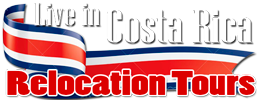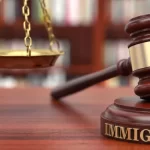Top 10 FAQs About Moving to Costa Rica: A Guide for Expats and Retirees
Moving to Costa Rica is a life-changing decision for many expats and retirees looking for a new adventure, a slower pace of life, or simply a tropical paradise to call home. While the natural beauty, friendly people, and appealing cost of living are huge draws, making the move and settling into a new country can feel overwhelming. From finding a place to live to navigating healthcare, transportation, and residency requirements, there are several practical aspects to consider as you embark on this new chapter of your life.
To help you transition smoothly, we’ve compiled a list of the top 10 frequently asked questions (FAQs) about moving to Costa Rica. Whether you’re planning to retire or start a new life as an expat, this guide will help you get started.
1. How do I find a home in Costa Rica? Should I rent or buy?
One of the first steps in moving to Costa Rica is deciding where to live and whether to rent or buy. Renting is highly recommended for newcomers, as it gives you time to explore different areas and get a feel for the lifestyle before making a long-term commitment. Costa Rica’s diverse regions each offer something different—from beach towns like Tamarindo and Nosara, to the cooler, lush central highlands in places like Atenas or San Ramón.
Renting:
Renting allows flexibility and less stress in the beginning. The rental market in Costa Rica can be competitive in tourist-heavy areas, but you can still find homes for various budgets. Most leases are for 12 months, but shorter-term rentals are also available.
Buying:
If you’ve decided on a location and are ready to settle down permanently, buying property can be a great investment. Costa Rica allows foreigners to own property outright, and the process is similar to that in the United States or Europe. However, it’s essential to work with a reputable real estate agent and attorney to avoid any legal or financial pitfalls.
2. How do I get a phone and set up utilities?
Getting a phone and setting up utilities in Costa Rica is relatively straightforward. Most expats choose to get a prepaid or postpaid mobile phone plan from one of the major service providers like Kolbi or Claro. Kolbi is the national provider and has the widest coverage across the country.
For utilities, if you’re renting, these are often included in your rent or managed by the landlord. If not, you can set up electricity, water, and internet by visiting local service provider offices or having your landlord assist you with the process. High-speed internet is available in most areas but can be limited in more rural or remote locations.
3. What are the healthcare options and should I buy health insurance?
Costa Rica is known for its excellent healthcare system, which is divided into public and private sectors. Many expats choose to buy private health insurance, but Costa Rica’s public healthcare system (known as the Caja Costarricense de Seguro Social, or CCSS) is also highly regarded and offers affordable care.
Public Healthcare:
Once you obtain residency, you’ll need to enroll in the Caja system. The Caja covers most medical services, including doctor’s visits, prescriptions, and hospital stays. While the care is high-quality, wait times can be long for non-urgent procedures.
Private Healthcare:
Many expats opt for private health insurance, which allows access to private hospitals and clinics. CIMA Hospital in San José and Clínica Bíblica are two of the country’s top private healthcare facilities. Private care is faster and more personalized but comes at a higher cost. Private health insurance costs can vary based on your age and medical history but are generally lower than in the U.S.
4. How do I apply for residency in Costa Rica?
Applying for residency in Costa Rica is a critical step for long-term expats. There are several residency categories, but the two most popular for retirees and expats are:
- Pensionado: For retirees with a guaranteed lifetime pension of at least $1,000 per month.
- Rentista: For individuals with a guaranteed income of at least $2,500 per month for at least two years or a deposit of $60,000 in a Costa Rican bank.
The application process involves gathering documents like birth certificates, background checks (FBI Report), and proof of income, which must be authenticated (apostilled) in your home country. It’s advisable to hire an attorney who specializes in residency to help with the process, as the paperwork can be complex and take several months to complete.
5. Can I open a bank account in Costa Rica?
Yes, you can open a bank account in Costa Rica, but it may require some patience and documentation. Most banks will require proof of residency, but some will allow foreigners to open a basic account with just a passport.
Popular banks include:
- Banco Nacional
- Banco de Costa Rica
- BAC Credomatic
Each bank has its own requirements, and the process can vary by branch, so it’s worth visiting a few to find one that suits your needs. Banking hours can be limited, and customer service may not be as fast as in other countries, so patience is key.
6. Do I need a Costa Rican driver’s license?
If you’re planning to drive in Costa Rica, you can use your foreign driver’s license for the first 180 days (recently changed from 90 days), as long as your tourist visa is valid. Once you obtain residency, you’ll need to apply for a Costa Rican driver’s license.
To get a local license, you’ll need to visit the COSEVI (Road Safety Council) and provide your foreign license, passport, and proof of legal residency. Depending on your home country, you may be required to take a driving test, but many expats from the U.S., Canada, and Europe can avoid this step.
7. How do I buy a car in Costa Rica?
Buying a car in Costa Rica is possible but comes with a few challenges. Vehicles in Costa Rica tend to be more expensive than in North America or Europe due to high import taxes. You can buy new or used cars, but be cautious with used vehicles, as roads in some areas can be rough, and cars may have endured a lot of wear and tear.
Most expats recommend buying from a reputable dealership rather than an individual seller. Another option is to import a vehicle, but this process can be time-consuming and costly due to customs duties and import regulations.
8. How can I locate grocery stores and other daily necessities?
Finding grocery stores in Costa Rica is easy, and there are options for all budgets and preferences. Local markets are a great way to buy fresh, inexpensive produce, while larger supermarkets like Automercado, Mas x Menos, Pricesmart, and Walmart offer a wider variety of international products.
Many expats also enjoy shopping at ferias (farmer’s markets) that pop up weekly in most towns, offering a wide range of fresh fruits, vegetables, cheeses, and baked goods.
9. What’s the best way to meet other expats in Costa Rica?
Costa Rica has a large expat community, so meeting others is not difficult. Many towns popular with expats have social clubs, activities, and meetups. Facebook groups are also a valuable resource for connecting with other expats—look for groups focused on your region or interest.
Local meetups, language classes, and volunteering are also great ways to meet both expats and locals. Expats in areas like the Central Valley, Guanacaste, and the Southern Zone are known for being friendly and supportive of newcomers.
10. What should I do first when I arrive in Costa Rica?
After you’ve arrived and settled into your temporary home, focus on getting familiar with your new surroundings:
- Register with your embassy or consulate.
- Start the residency process if you haven’t already.
- Learn basic Spanish—while many Costa Ricans speak English, especially in tourist areas, learning the local language will enhance your experience.
- Take some time to explore the local culture, cuisine, and landscapes.
Costa Rica offers a welcoming environment for expats and retirees. By planning ahead and taking it step by step, you’ll soon feel at home in this beautiful country.
If you’re ready to take the next step toward making Costa Rica your home, consider joining one of our relocation tours and seminars. Christopher Howard give you the inside scoop on expats living in Costa Rica, providing you with hands-on experience as you explore popular areas, meet fellow expats, and learn about housing, healthcare, and local amenities. With personalized advice and a chance to see the real Costa Rica up close, our tours are the perfect way to start your new adventure with confidence. Let us help you make your dream of living in Costa Rica reality!



